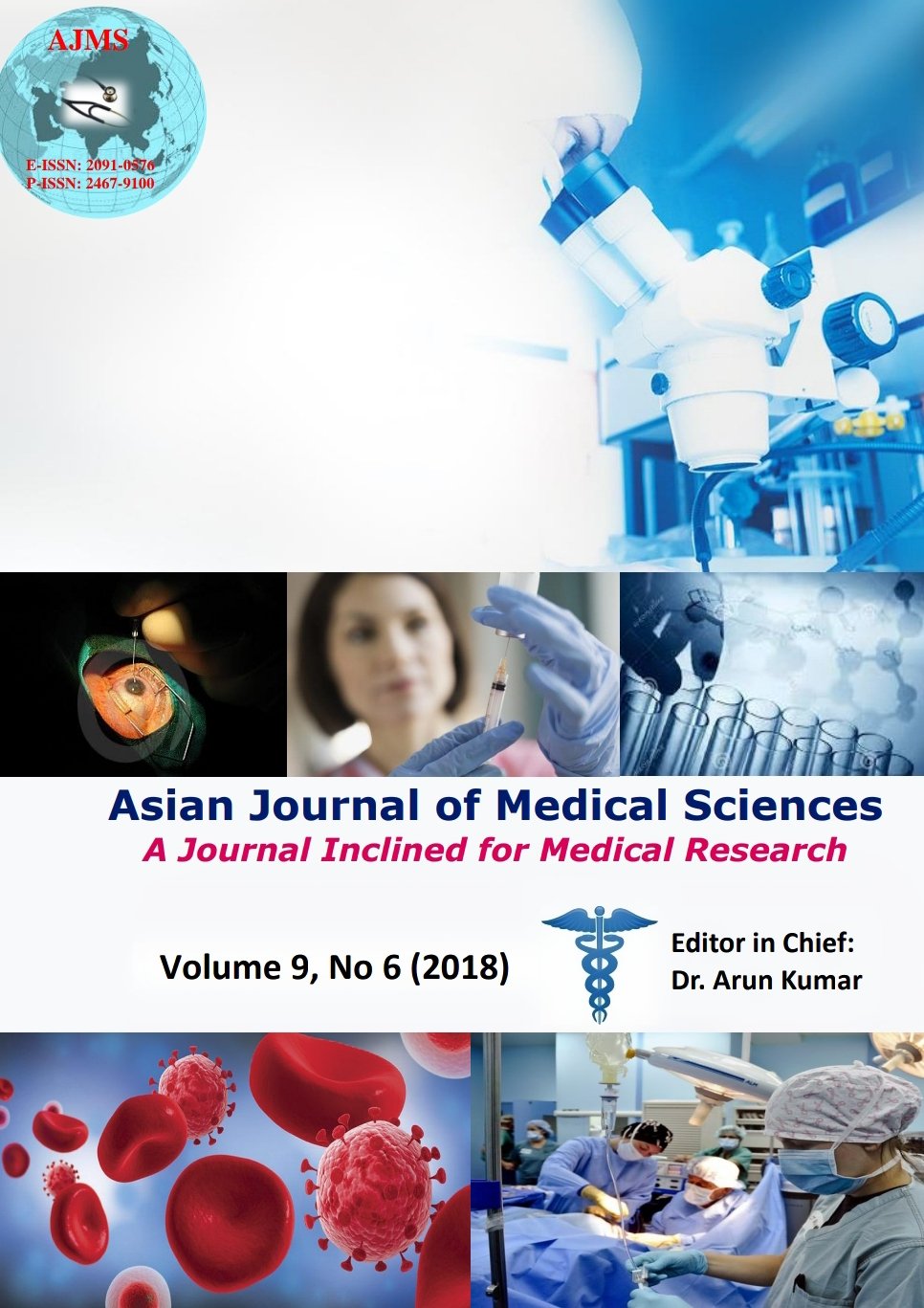Assessment of recent epidemiological trends in peptic ulcer perforation patients in an eastern indian tertiary hospital
Keywords:
Peptic, Perforation, Epidemiology, Prognostic factors, Helicobacter pylori, NSAID.Abstract
Background: Peptic Ulcer perforation is one of the most important and dreaded complication of peptic ulcer disease. In-spite of recent therapeutic management options available, it is still life threatening catastrophe. Sudden release of gastric and duodenal content in peritoneal cavity leads to devastating sequence of events which if not properly managed may lead to death. Age and Gender adjusted analysis of incidence, morbidity and mortality and the effect of ulcerogenic medications, addictions and H. Pylori infection in prognosis were studied here. Postoperative outcomes were also assessed after giving same type of treatments (Preoperative resuscitation, Graham’s Patch repair, and postoperative care) given by same surgical team.
Aims and Objectives: The aims and objectives of this study were to investigate the latest trends of incidence, presentation, morbidity and mortality of benign perforated gastro-duodenal ulcer among the various age groups of population and to further study the risk factors associated with these events and study the association of addiction, ulcerogenic medications and H. Pylori infection.
Materials and Methods: This observational descriptive study was conducted in R.G.Kar Medical College, Kolkata between the periods from January 2016 to June 2017 among 102 patients.
Results: In this study of 102 patients 97% were male patients, maximum number of patient were from the age group 15 -30 years (45.1%).86.3% were from low socio- economic status and 40.2% residing in urban slum. Maximum number of patients presenting within 72 hrs (71%) having zero mortality. Seventy four percent of patients presented with shock if came between 4-5 days with 17.39% mortality. Patient presenting after 5 days had mortality of 75% and shock was 100% finding. Size <1 cm having 1% mortality but if size is >1 cm then mortality was >50.5%.
Conclusion: Perforated peptic ulcer is common among males in second and third decade of their life with patients living in rural and urban slum commonly affected. Most common predisposing factors for PPU among younger population were addictions like smoking or alcohol intake. Among the elderly patients, intake of ulcerogenic medications like NSAID and steroids was the most common predisposing factor for PPU. Among patients of non-NSAID associated PPU, Helicobacter pylori infection was the major cause in the pathogenesis of PPU.
Asian Journal of Medical Sciences Vol.9(6) 2018 68-75
Downloads
Downloads
Published
How to Cite
Issue
Section
License
Authors who publish with this journal agree to the following terms:
- The journal holds copyright and publishes the work under a Creative Commons CC-BY-NC license that permits use, distribution and reprduction in any medium, provided the original work is properly cited and is not used for commercial purposes. The journal should be recognised as the original publisher of this work.
- Authors are able to enter into separate, additional contractual arrangements for the non-exclusive distribution of the journal's published version of the work (e.g., post it to an institutional repository or publish it in a book), with an acknowledgement of its initial publication in this journal.
- Authors are permitted and encouraged to post their work online (e.g., in institutional repositories or on their website) prior to and during the submission process, as it can lead to productive exchanges, as well as earlier and greater citation of published work (See The Effect of Open Access).




